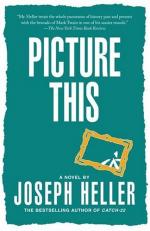|
This section contains 160 words (approx. 1 page at 300 words per page) |

|
Picture This is firmly grounded in classical texts. Among Heller's major sources were Thucydides' history of the Pelopponnesian War, Plutarch's lives of Alexander and Pericles, Diogenes Laertius's lives of Plato and Socrates, Aristotle's Poetics, Xenophon's Hellenica, and a number of texts by Plato, including Apology, Crito, Laws, Phaedo, Symposium, and The Republic.
Works by Hesiod, Homer, and Aristophanes also receive brief mention.
Heller quotes extensively from his classical sources; however, as David Seed notes in The Fiction of Joseph Heller: Against the Grain, Heller transforms them "by selection, paraphrase and verbal revision" — usually to emphasize his modern skepticism.
Heller's portrait of Rembrandt is influenced by Gary Schwartz's Rembrandt: His Life, His Paintings (1985).
Two other sources — Simon Shama's The Embarrassment of Riches (1987) and Paul Zumthor's Daily Life in Rembrandt's Holland (1963) — helped Heller to establish the artist's cultural context.
His primary source on Dutch imperialism...
|
This section contains 160 words (approx. 1 page at 300 words per page) |

|




